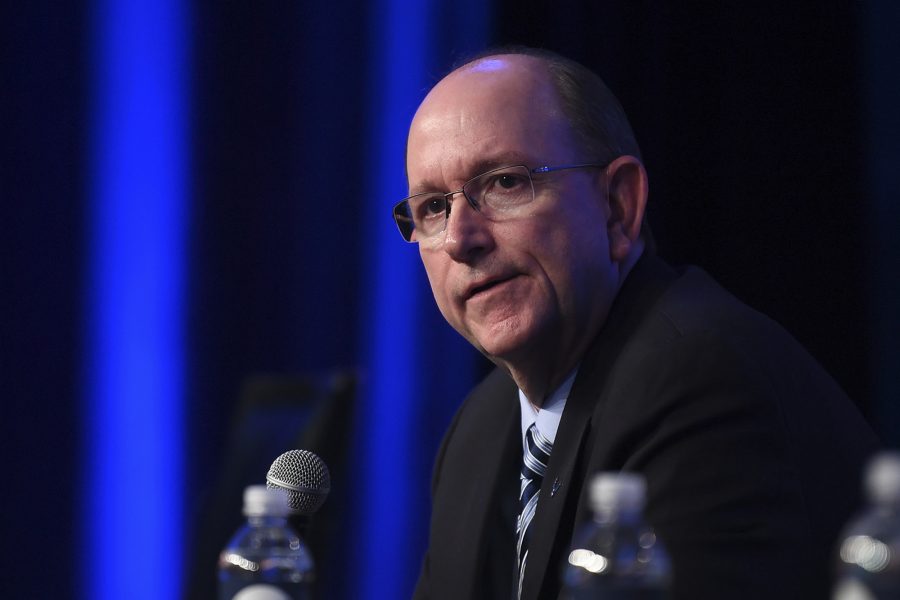Former Undersecretary of the Air Force Matthew P. Donovan will lead a new research center focused on the advancement of spacepower and the needs of the U.S. Space Force. Called MI-SPARC, the new Mitchell Institute Spacepower Advantage Research Center will have its own research staff.
Donovan was Air Force under secretary, Acting Secretary of the Air Force, and undersecretary of defense for personnel and readiness during the Trump administration. During that time he helped pave the way for the Space Force to become an independent service under the Department of the Air Force.
“The United States really did consider space a benign domain and didn’t want to weaponize it,” Donovan said in a press call April 26. “That wasn’t our choice. Our adversaries did that for us. [Now], we want to make sure when we’re talking about the defense budget, that space stays at the forefront of the minds of the people who are making those decisions on funding and policy.”
While at the Air Force Department, Donovan sought to shed the so-called pass-through budget—about $40 billion in largely classified spending also known as the “non-blue budget. “That is a problem,” Donovan said in an interview. “That’ll be another major platform position MI-SPARC will be going after, because it not only affects the United States Air Force, but now also the United States Space Force, as both are within the top line of the Department of the Air Force. There’s nearly $40 billion that are passed through the Air Force but executed by other agencies within the Department of Defense. I had no support within the Department of Defense for that, because showing the true top line authority of the Department of the Air Force is not really in anyone else’s best interest … if you think about it.”
Donovan said during his time as Acting Air Force Secretary, then-Acting Defense Secretary Mark Esper was unaware of the pass-through, and he noted that senators asked incoming Defense Secretary Lloyd J. Austin III about it during his confirmation hearing. The fact that this $40 billion bill is hidden in plain sight in the Air Force budget is “amazing, really,” he said.
This portion of the Air Force budget has artificially inflated the service’s top line for decades, Air Force Magazine previously reported.
Donovan said it’s an “issue that’s near and dear to my heart,” noting that budget transparency “becomes even more critical now when you consider that at the Department of Air Force budget includes funding for two separate military services.”
In addition, the research center plans to take a deep dive into the roles and responsibilities of military space, space authorities, assuring communications and the implications associated with that, as well as cutting-edge space technologies, such as nuclear-powered propulsion systems for spacecraft.
“MI-SPARC will contribute to the education of the American public, the Congress, and the burgeoning space industry on the criticality of space for America’s national security, and indeed for our economy, our way of life, and our global leadership,” said retired Lt. Gen. David A. Deptula, dean of the Mitchell Institute.
MI-SPARC will serve as an arm of AFA’s Mitchell Institute for Aerospace Studies, and Donovan said the two organizations will work hand-in-hand. In addition to Donovan, Christopher Stone, a space professional and professor of space strategy, and Lukas Autenried, Mitchell’s lead senior analyst, will join the MI-SPARC team.
“MI-SPARC could not come at a more opportune time as our association expands to support and advocate for two great military services, rather than one. The Guardians of the United States Space Force need the same kind of independent advocacy that AFA and the Mitchell Institute has long provided our Air Force,” AFA President retired Lt. Gen. Bruce “Orville” Wright said. “Former Secretary Donovan’s years of leadership experience in the Department of Defense and on Capitol Hill make him the ideal leader for this role.”
